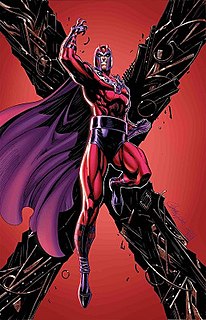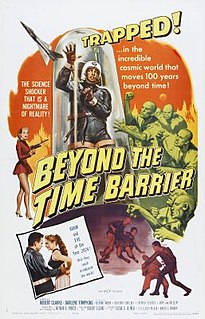Plot summary
The protagonist, the Mindworm of the title, is an orphan, the result of a liaison between a U.S. Navy lieutenant and a nurse aboard ship during viewing of early atomic tests. He is a mutant, as a result of the atomic fallout after the testing, and he can "hear" the thoughts of others around him.
Cast out into the world as a young adult, he is about to be gang raped by hoboes when he discovers an ability to feed off strong emotions, killing one of his assailants in the process. He uses this to eliminate the rest of his attackers. He moves from town to town, eavesdropping on the thoughts of people around him, and using his abilities to induce the intense emotion he craves, and to gain material wealth. The thoughts he hears often represent a brutal side of America, as he hears the large and small cruelties people inflict on each other, ranging from family quarrels to beatings carried out in dark alleyways.

A hobo is a migrant worker or homeless vagrant, especially one who is impoverished. The term originated in the Western—probably Northwestern—United States around 1890. Unlike a "tramp", who works only when forced to, and a "bum", who does not work at all, a "hobo" is a traveling worker.
He can hear thoughts in other languages, though he cannot understand them. As he moves into communities where new Eastern European immigrants have congregated, he starts hearing the term "wompyear". Just as he realizes that this is their pronunciation of the word "vampire" and they have recognized him, his neighbors burst in and kill him.

The X-Men are a team of fictional superheroes appearing in American comic books published by Marvel Comics. Created by artist/co-writer Jack Kirby and writer Stan Lee, the characters first appeared in The X-Men #1 and formed one of the most recognizable and successful franchises of Marvel Comics, appearing in numerous books, television shows, films, and video games.

Orphans of the Sky is a science fiction novel by American writer Robert A. Heinlein, consisting of two parts: "Universe" and its sequel, "Common Sense". The two novellas were first published together in book form in 1963. "Universe" was also published separately in 1951 as a 10¢ Dell paperback. These works contain one of the earliest fictional depictions of a generation ship.

On the Beach is a 1957 post-apocalyptic novel written by British author Nevil Shute after he emigrated to Australia. The novel details the experiences of a mixed group of people in Melbourne as they await the arrival of deadly radiation spreading towards them from the Northern Hemisphere, following a nuclear war a year previously. As the radiation approaches, each person deals with impending death differently.

Magneto is a fictional character appearing in American comic books published by Marvel Comics, commonly in association with the X-Men. Created by writer Stan Lee and artist Jack Kirby, the character first appears in The X-Men #1 as an adversary of the X-Men.

Quicksilver is a fictional character appearing in American comic books published by Marvel Comics. The character first appeared in the comic book X-Men #4 and was created by Stan Lee and Jack Kirby. The character has since starred in two self-titled limited series, and has historically been depicted as a regular team member in superhero title The Avengers.
Jonothon "Jono" Evan Starsmore, better known as Chamber or Decibel, is a fictional superhero appearing in American comic books published by Marvel Comics. The character is usually associated with the X-Men and the New Warriors.

X the Unknown is a 1956 British science fiction horror film directed by Leslie Norman and starring Dean Jagger and Edward Chapman. It was made by the Hammer Film Productions company and written by Jimmy Sangster. The film is significant in that "it firmly established Hammer's transition from B-movie thrillers to out-and-out horror/science fiction" and, with The Quatermass Xperiment (1955) and Quatermass 2 (1957), completes "an important trilogy containing relevant allegorical threads revealing Cold War anxieties and a diminishing national identity resulting from Britain's decrease in status as a world power".

Mutant X is a science fiction television series that debuted in first-run syndication on October 6, 2001. The show was created by Avi Arad, and it centers on Mutant X, a team of "New Mutants" who possess extraordinary powers as a result of genetic engineering. The members of Mutant X were used as test subjects in a series of covert government experiments. The mission of Mutant X is to seek out and protect their fellow New Mutants. The series was filmed in Toronto, Ontario, Canada.

Since their public debut in August 1945, nuclear weapons and their potential effects have been a recurring motif in popular culture, to the extent that the decades of the Cold War are often referred to as the "atomic age".

The Genocide Machine is a Big Finish Productions audio drama based on the long-running British science fiction television series Doctor Who. It forms the first serial in the Dalek Empire arc, which continues in The Apocalypse Element and The Mutant Phase. It concludes in The Time of the Daleks.

"A World of Talent" is a science fiction short story by American writer Philip K. Dick, first published in Galaxy Science Fiction magazine, October 1954.

"Inferno" was a Marvel Comics company-wide crossover storyline in 1989 that mainly involved the mutant titles, namely Uncanny X-Men, X-Factor, X-Terminators, Excalibur, and The New Mutants. The story concerned the corruption of Madelyne Pryor into the Goblin Queen, the final transformation of Illyana Rasputin into the Darkchylde, the demonic transformation of Hobgoblin, and a demonic invasion of New York City. The series was written by Louise Simonson, Chris Claremont, Steve Engelhart, Gerry Conway, David Michelinie, Ann Nocenti, Walter Simonson, Jon Bogdanove, Terry Austin, and Julianna Jones.

The Cat's Pajamas: Stories (2004) is a collection of short stories by Ray Bradbury. Its name of its title story comes from a phrase in English meaning a sought after and fancy thing. Another collection by the same name was published in the same year by fellow science fiction author James Morrow.
"I Second That Emotion" is the first episode in season two of Futurama. It originally aired on the Fox network in the United States on November 21, 1999. The episode was written by Patric Verrone and directed by Mark Ervin. The episode introduces the recurring sewer mutants, a society of humans who have been mutated by years of exposure to pollution and radioactive waste poured into the sewers from New New York.
"Breeds There a Man...?" is a science fiction short story by American writer Isaac Asimov. It was first published in the June 1951 issue of Astounding and was reprinted in science fiction anthologies such as Beachheads in Space (1952) and The Great SF Stories #13 (1951), as well as in Asimov-only collections such as Through a Glass, Clearly (1967), Nightfall and Other Stories (1969). and Robot Dreams (1986).
"Mimsy Were the Borogoves" is a science fiction short story by Lewis Padgett, originally published in the February 1943 issue of Astounding Science Fiction Magazine. It was judged by the Science Fiction Writers of America to be among the best science fiction stories written prior to 1965 and included in the anthology The Science Fiction Hall of Fame, Volume One, 1929–1964. In 2007, it was loosely adapted into a feature-length film titled The Last Mimzy. The title of the original short story was directly inspired by a verse from “Jabberwocky,” a poem found in the classic novel Through the Looking-Glass by author Lewis Carroll.
"Dark They Were, and Golden-Eyed" is a science fiction short story by American writer Ray Bradbury. It was originally published in the magazine Thrilling Wonder Stories in August 1949, under the title "The Naming of Names". It was subsequently included in the short-story collections A Medicine for Melancholy and S is for Space.

Beyond the Time Barrier is a 1960 American Cold War-era black and white time travel science fiction film filmed in Texas in ten days. It was released in September, 1960 on a double bill with The Angry Red Planet. It starred, and was produced by, Robert Clarke and directed by Edgar G. Ulmer. Ulmer's wife Shirley acted as a script editor while their daughter Arianne Arden appeared in the film as a Russian pilot.
"The Plattner Story" is a short story by English writer H. G. Wells, first published in 1896 in The New Review. It was included in The Plattner Story and Others, a collection of short stories by Wells first published in 1897, and in The Country of the Blind and Other Stories, a collection of his short stories first published in 1911. In the story, a man recounts his experiences in a parallel world.















